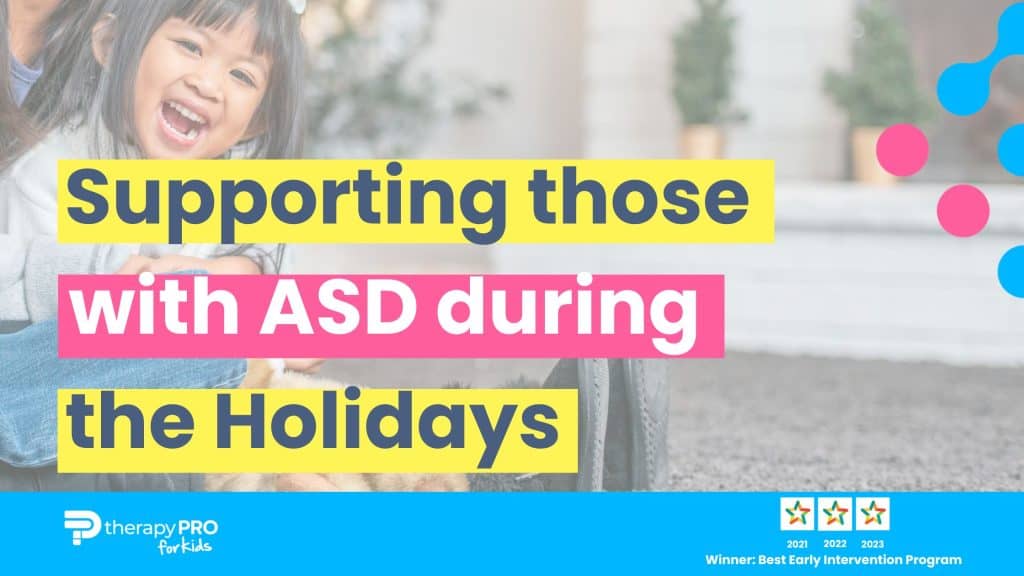Tips for supporting people and families with Autism Spectrum Disorder (ASD) during the holidays
During the holiday period, there is a lot more change to day-to-day routines than usual. Carols play loudly, bells ring, the shopping centres become very crowded and there are a lot more colours and busy banners hanging, which can become stressful and overwhelming for people with Autism Spectrum Disorder (ASD).
The holiday season is a busy time of the year, and many people look forward to fun get-togethers with friends and family. With the right planning and communication, the festive season can still be enjoyable and exciting.
Preparing for the Holiday Season
- Start having conversations with friends and family early on about what you want to prioritise during the festive season. Ensure to involve the person with ASD in as many conversations as possible.
- Think about different sensory aspects of the holiday period that may be overwhelming and prioritise what is most important to the person and family (e.g. Is the Santa photo needed? Hugs? Do the lights on the tree need to be flashing?)
- Plan support services, respite, therapy and time with family and friends well in advance.
- Start to plan and prepare for holiday events (e.g. school parties).
- Think about which holiday traditions will be part of the festive season (e.g. wearing matching pyjamas, lighting a Menorah or candles in the kinara, putting up the tree, making cookies etc).
- Prepare the family for these traditions well in advance, using visual schedules/calendars.
- If visiting family/family coming to visit, consider how long the stay might be and allow for respite time during this period.
- Plan for fun holiday treats that fit within your child’s diet. Ensure family and friends are aware of any special dietary requirements so they don’t miss out.
Maintain Routines
- Try to stick with routines like bedtime, bath time and meals or try to keep one routine in place so that the person has something they can count on being the same.
- Preparation for change in routines is recommended and having it written down or displayed on a visual schedule is even better!
- When introducing new activities/traditions into the routine, ensure the change is gradual and the person has some choice in where/when the change occurs (e.g., the person may choose to have a Christmas tree in a part of the house that isn’t seen/impact on daily routines as much, rather than being in the middle of the lounge, which may be a safe space for them).
Managing Sensory Processing Needs
- Consider the person’s individual sensory processing needs (e.g., sensitivity to noise, smell or touch) and think about how increased noise, smells or touch can impact them.
- Ensure the person has access to tools that can support them to regulate and calm down if overwhelmed.
- Ensure the home is decorated in a way that makes the person feel safe and comfortable (i.e., this may also mean that no decorations are put up).
- Decorate gradually and involve the person in the process to ensure they feel safe and calm.
- Consider whether gifts/groceries can be bought online rather than going into busy shopping centres or avoid the days/times that are most busy.
- Discuss with family members whether presents need to be wrapped or not to eliminate the noisy, crinkly wrapping paper when opening presents. This may also
decrease the element of surprise if that can be overwhelming for the person. - Ensure there is always a safe space in the home/when visiting family that the person with ASD can go to if feeling overwhelmed.
Remember every person and family has different holiday traditions and their preferences for the festive season. Make sure you do what works for your family and think about maintaining predictability through routines and familiar places and people. Happy Holidays!
The information in this article was contributed by Rachel, an occupational therapist in Therapy Pro’s Sunshine Coast team. To learn more about Occupational Therapy, click here.




